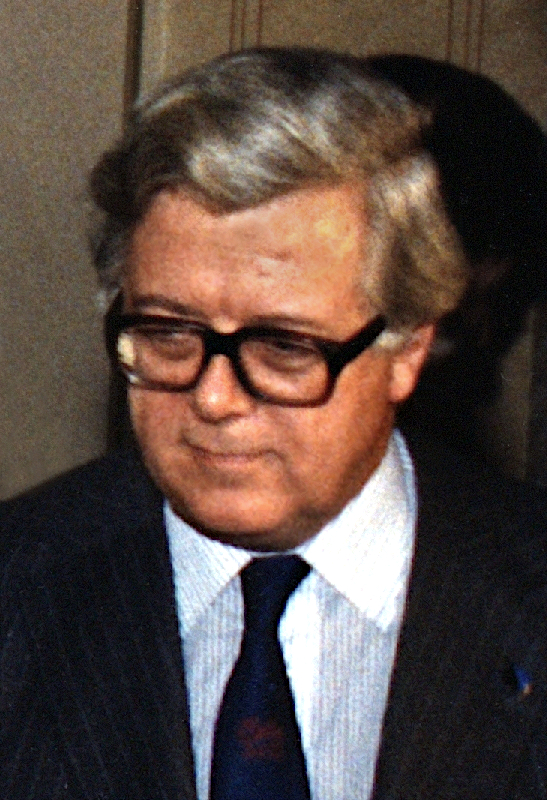Geoffrey Howe
 Richard Edward Geoffrey Howe, Baron Howe of Aberavon, (20 December 1926 – 9 October 2015), known from 1970 to 1992 as Sir Geoffrey Howe, was a British politician who served as Deputy Prime Minister of the United Kingdom from 1989 to 1990. A member of the Conservative Party, he was Margaret Thatcher's longest-serving Cabinet minister, successively holding the posts of chancellor of the Exchequer, foreign secretary, and finally leader of the House of Commons, deputy prime minister and lord president of the Council. His resignation on 1 November 1990 is widely considered to have precipitated the leadership challenge that led to Thatcher's resignation three weeks later.
Richard Edward Geoffrey Howe, Baron Howe of Aberavon, (20 December 1926 – 9 October 2015), known from 1970 to 1992 as Sir Geoffrey Howe, was a British politician who served as Deputy Prime Minister of the United Kingdom from 1989 to 1990. A member of the Conservative Party, he was Margaret Thatcher's longest-serving Cabinet minister, successively holding the posts of chancellor of the Exchequer, foreign secretary, and finally leader of the House of Commons, deputy prime minister and lord president of the Council. His resignation on 1 November 1990 is widely considered to have precipitated the leadership challenge that led to Thatcher's resignation three weeks later.Born in Port Talbot, Wales, Howe was educated at Bridgend Preparatory School, Abberley Hall School, Winchester College, and – after serving in the army as a lieutenant – Trinity Hall, Cambridge, where he read law. He was called to the bar in 1952 and practised in Wales, after which he was elected as the Conservative member of Parliament (MP) for Bebington in 1964, but lost his seat in 1966, returning to the bar. Howe became an MP again at the 1970 general election and represented various constituencies in the House of Commons until 1992. In Edward Heath's government, he was solicitor general and a minister of state; after Labour's victory in 1974, Howe became the shadow chancellor of the Exchequer in Margaret Thatcher's shadow cabinet.
Howe became Chancellor of the Exchequer upon Thatcher's victory in the 1979 general election, with his tenure characterised by a programme of radical policies intended to restore the public finances, reduce inflation and liberalise the economy. As chancellor, Howe delivered five budgets. After the 1983 general election, Howe was appointed foreign secretary, serving six years. In 1989, Thatcher replaced Howe with John Major, giving Howe the role of deputy prime minister. He resigned from the government on 1 November 1990; in his resignation letter, he criticised Thatcher's handling of relations with the EEC and further attacked Thatcher in his resignation speech to the Commons on 13 November. The speech was widely seen as the key catalyst for the leadership challenge mounted by Michael Heseltine a few days later, which led to Thatcher's resignation and her replacement by Major.
Howe retired as an MP in 1992 and was made a life peer in June of that year. Following his retirement from the Commons, Howe took on several non-executive directorships in business and advisory posts in law and academia. He retired from the House of Lords in May 2015 and died in October of the same year, aged 88. Provided by Wikipedia
-
1by The British Broadcasting Corporation, Patrick, Soraya (anchor), Caroit, Jean Michel (correspondent), Ransome, Debbie (correspondent), Keens-Douglas, Paul (interviewee), Baptiste, Sandra (correspondent), Layne-Clarke, Janette (interviewee), Barker-Welch, Maizie (interviewee), Crosskill, Hugh (correspondent), Thatcher, Margaret, Howe, Geoffrey, Major, John, Perreira, Joseph 'Reds' (correspondent)
Published 1990-11-23Recording, oral bibliotecaUWI TT



